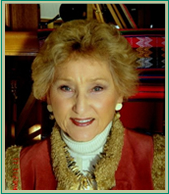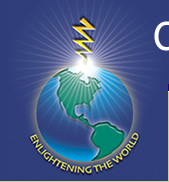
The School of Life
|
 |
|
| Christa Metzger Associate |
Think back on some lesson you have learned in your life, one that you would consider a life-changing one. Was it painful? Did you wonder at the time why you had to experience it? Or how you might have avoided it? Were there signs that it was coming—some inner sense, an intuition?
Each of us is enrolled in a school called Life, where we seem to be given certain lessons to learn. Can we escape them? Could we pay more attention to something in our life patterns so that we wouldn’t have to endure the inevitable pain that seems to accompany each lesson? Are we aware of what each lesson is designed to teach us?
As educators, we know something about lessons in school. When I first learned English, or how to play the piano (actually a harmonium), it was often hard, and I sometimes didn’t understand why my teachers and parents seemed so unrelenting and made me persevere with the lessons.
In our adult school of Life, we wonder who is designing the lessons that we must learn, or if it’s just happenstance. Fearing how some lessons might change us, we sometimes try to run from them. But the lessons always catch up with us. Sometimes—usually not when we’re in the middle of it—we catch a glimpse of a bigger design and a purpose that a particular lesson might serve.
Do we trust that what we are experiencing is really necessary? I believe that our purpose in life is to become whole human beings, and that includes all dimensions of our being: physical, mental, spiritual, and emotional. I believe that we are given lessons so that we may awaken and pay attention to any aspects of our developing Self that we have neglected and, ultimately, discover the purpose for which we were born. My belief in this principle is sometimes buried under a mountain of self-doubts, under fears of what I can’t control, under unanswered questions of who I will be when it’s all over. But my deep-seated beliefs always show up again—like a ray of light that breaks through to give hope in the midst of the darkest forest.
I want to share an example from my life, something I consider probably the darkest time of my entire life. It was a lesson about loss. I even wrote a book about it years afterward: Unemployed: A Journey Through the Dark Woods (2011).
I lost my job as district superintendent after having been a superintendent in two different districts for 10 years of my career. It took me over a decade to come to grips with how this could have happened to me. I had a “brilliant,” textbook-model career—teacher, assistant principal, principal, district administrator, assistant superintendent, and then superintendent. I had earned all kinds of distinctions and awards, had served in numerous leadership positions in my profession and in my communities. I knew I was “good.” My profession was my life, my identity.
Where does it say that “pride comes before destruction”? I was quite confident that I could handle anything—even a majority turnover on my elected school board! Of course I knew what the research said about the effect of such a change on a superintendent’s survival. I knew that most superintendents don’t outlast a new board majority. However, I was confident that I would be able to adapt to the changes that would result from the district’s new policy makers. Unfortunately, I acknowledged too late that I didn’t fit into their mold, and that they had already made up their mind to hire someone else. I didn’t survive. Even now, many years later, it’s painful for me to talk about the details of how it all happened and the deep pit of despair into which I fell. It took a lot of inner work over several years for me to emerge from that life lesson.
Looking back, here’s what this particular lesson taught me. I still wonder if there might have been an easier way to learn these things, but I have no answer to that question—in this lifetime, at least.
- Humility must be a part of self-confidence.
- You cannot always control other people, even with your best intentions, knowledge, and skills. (Now why hadn’t I learned that before?)
- Past successes don’t always matter that much.
- You need to develop a set of coping skills to use when you find yourself in dark times. Thus I learned to meditate, to find silence and solitude, to renew the spiritual dimension of my life.
- There are blessings that arise from the lesson which will (very) gradually reveal themselves.
- You need a lot of time and patience to survive, to believe again, and to find new paths for your life. For me, this loss was the beginning of another successful 10-year career as a university professor. I earned tenure and the distinction of professor emeritus. My new career gave me more time to write, to publish, and to make perhaps a greater impact by teaching and preparing future administrators.
- We grow from all of our experiences, especially the painful ones.
- The purpose of lessons is not always immediately apparent. We must endure the winter until the new buds of spring appear and we can begin to sense what it was all about.
- Every lesson—every problem—is an opportunity for change, for something new to happen, for a turn in the path that leads to new vistas.
- Each lesson helps us master something that we need for our journey toward wholeness in life. Each lesson equips us in some way to get through the next one with a bit more detachment and assurance that we are on the road to discover the essential meaning of our life.
This is what I believe about life’s lessons now. But I’m still taking lessons, of course.
I determine to live the outer life in the inward sanctuary. —Howard Thurman, “Meditations of the Heart”
![]()
Center for Empowered Leadership ®
Email: info@cfel.org
Phone: 1.609.259.7911
